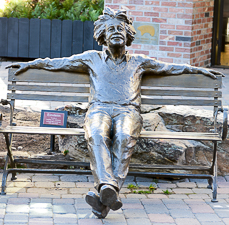In the challenge of our times – as brilliance competes with political correctness for resources, and reasonable people are increasingly questioning authority – strategies for being innovative deserve examination. It’s important to distinguish meritocracy from autocracy, beginning with context and the implications of autocracy and meritocracy. Then, in subsequent posts, I’ll present recommendations for attracting, recruiting and retaining talent that can flourish in meritocracy.
Context
Your personal and career context is especially relevant, as it contains actual experience from which you have discerned autocratic and meritocratic business cultures. At the core of the distinction is the extent to which human brilliance is unfurled in a business enterprise.
meritocracy |ˌmeriˈtäkrəsē|
noun (pl. meritocracies)
government or the holding of power by people selected on the basis of their ability.
• a society governed by meritocracy.
• a ruling or influential class of educated or skilled people.
meritocratic |ˌmeritəˈkratik| adjective
………..
autocracy |ôˈtäkrəsē|
noun (pl. autocracies)
a system of government by one person with absolute power.
• a country, state, or society governed by one person with absolute power.
• domineering rule or control: a boss who shifts between autocracy, persuasion, and consultation.
autocratically |-ik(ə)lē| adverb
The dictionary distinguishes meritocracy as the holding of power by people selected on the basis of their ability. I would extend this: In a meritocracy, ideally people of ability occupy all roles at all levels, and each is respected and empowered. Moderating the potential egotism and self-absorption of highly capable individuals is the mutuality of purpose each member observes, embodied in the organization’s mission, vision, goals and values. The mission orientation evokes a mutual subordinacy and team dynamic focused on achievement of a shared enterprise mission.
As a result, the meritocratic culture is relatively free of fear, apprehension, or risk avoidant behavior. The culture is athletic, purposeful, respectful, polite and skillfully collaborative, and the avoidant behavior of “political correctness” is seldom observed. Rewards and pressures are associated with competence and achievement at all levels, not just at the senior executive level. The culture is characterized – particularly on mission-relevant endeavor – by constructive impertinence, and the ability to get to insight for identifying and solving problems.
By contrast to the mission-orientation and collaborative spirit of meritocracy, autocracy is concerned with enterprise politics and power. It attracts individuals who are interested in absolute power and people intent on pleasing or serving the politically powerful. Often autocracy is effusively rationalized, yet what is being said is an argument for other than meritocracy, which yields a more brilliant culture and a far greater performance capacity.
Politics aside, our concern as managers is achieving the highest sustained level of performance enterprise-wide, as measured in specific performance metrics. As leaders, we are concerned with maximizing the performance capacity of the enterprise, and continuously increasing the reliability to perform in accordance with the enterprise mission, vision, values and goals.
One of the ironies of autocracy occurs when the autocrat claims the authority to know, create and decide, and directs resources, accordingly. This is beyond ironic to someone who is geared for meritocracy. The meritocratic spirit is talent seeking a workplace conducive to professional growth, evident appreciation, and reward for accomplishment, irrespective of political status or rank. Autocracy is suffocating to the true meritocratic achiever.
Most business organizations are crude autocratic cultures, and the byproduct of this social imbalance is fear and anxiety, culturewide. Nearly 80% of employees believe they are not valued, appreciated or respected by their employer. (Inc. Magazine, May 2014)
Irony peaks when it comes to organizational brilliance. By the audaciously disproportionate salaries of today’s CEO’s – shown by the ratio of the CEO’s salary and the average hourly wage in the company – one can roughly approximate the CEO’s apparent ignorance about what enables organizational brilliance. Amplifying cultural fear and apprehension, cultures of such disproportionate reward are sadly common, reinforcing the self-righteousness of autocratic C-Suites and Boards.
Yet, at the core of commonly articulated “ceo aspiration” is innovation. Think about it! The capacity to innovate brilliantly and reliably is a cultural phenomenon characterized by (1) constructive impertinence, and (2) consciously getting to insight. Fear and apprehension in a business culture is generally a byproduct of autocratic “leadership” at the top. In my research, the greatest limitations to constructive impertinence and getting to insight are cultural fear and apprehension promulgated, and sometimes consciously implemented, from the top.
Meritocratic achievers often stumble into autocratic briar patches. Most depart.
To develop a meritocratic culture, those at the top must constantly demonstrate “real leadership”, with unconditional encouragement, fairness and appreciation for all. This gives reason and framework for creating extraordinary emphasis in attracting, recruiting and retaining meritocratic talent.



